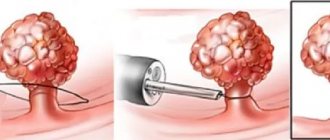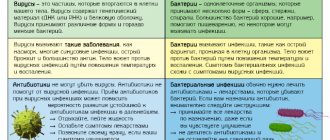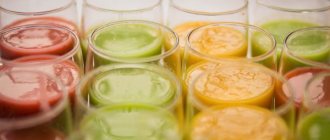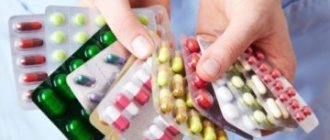Quite often, patients turn to their doctor with the question, is it possible to combine alcohol and antibiotics?
Every person has to deal with diseases that can only be overcome with the help of special antimicrobial drugs. The latter, as is known, are quite aggressive drugs, so antibacterial therapy is associated with certain restrictions, including the use of alcohol.
Antibiotics and alcohol: is it worth combining?
The question of whether it is possible to drink alcohol while taking antibiotics is debatable - it is easy to find conflicting opinions in the media. Previously, during a feast, an invited guest could refuse another portion of drink, citing antibiotic treatment. They sympathized with such a person and did not persuade him to drink. Now he may be objected to, citing articles in various publications claiming that alcohol-containing drinks do not interfere with the healing process. Where is the truth?
Combination of alcohol and antibiotics - main risks
When justifying the ban on the simultaneous use of antimicrobial agents and strong drinks, doctors usually explain the restrictions for the following reasons:
- Alcohol blocks (reduces) the therapeutic effects of antibiotics and/or causes unwanted reactions. The effectiveness of therapy decreases.
- With the simultaneous use of alcohol and antibacterial agents, severe toxic damage to the liver and other organs occurs.
How true are these statements?
Indeed, drinking intoxicating drinks can reduce the therapeutic effect of pharmaceutical drugs. In particular, this is due to the fact that alcohol either destroys the active substance itself or makes it difficult for the antibiotic to bind to the proteins of pathogenic microorganisms. In addition, drinking alcohol can lead to faster elimination of the drug from the body, which reduces its effectiveness, or, on the contrary, slows down the elimination of drug residues, resulting in unwanted symptoms.
Research and medical practice confirm that both alcohol and antibiotics have a depressant effect on the liver.
Liver under double attack
It is no coincidence that the instructions for antibacterial drugs indicate their negative impact on this important organ (some drugs are completely contraindicated for people with severe liver diseases). If you combine alcohol and an antibiotic, the liver suffers doubly, so the fears of doctors are completely justified. Not only the liver is under attack: a “cocktail” of alcohol with antimicrobial drugs negatively affects the functioning of the cardiovascular system, it is also dangerous for the pancreas and central nervous system.
Once in the body, alcohol is gradually broken down into carbon dioxide and water. The faster alcohol is processed, the less harmful the effect on the body. But with the simultaneous use of alcohol and antibiotics, the utilization of alcohol slows down, since the antibiotic blocks the enzyme alcohol dehydrogenase, which is necessary for the breakdown. Because of this, a toxic metabolite of alcohol accumulates in the blood, which poisons the body.
What is the basis for the statements of experts who believe that alcohol has no effect on the effect of commonly used antibiotics?
Is it possible to drink alcohol with antibiotics?
When can you drink after completing a course of antibiotic treatment?
Antibiotics differ in their active substance, and therefore it is difficult to say how long they will be eliminated from the body. Indeed, in one case you can drink alcohol the next day, and in another you need to abstain for seven days.
Exact information can be found directly in the instructions for the drug.
Has it been possible to prove the negative effect of alcohol on antibiotics?
To give a reasoned answer to the question, relevant research was carried out.
Scientists conducted laboratory experiments on animals and then invited volunteers to participate in the research. They were asked to undergo a treatment course with antibacterial agents, during which they could drink alcohol. The main goal that the organizers of the experiments set for themselves was to establish how alcohol (ethanol) affects antibiotics.
Research results have shown that most antibacterial agents most likely do not interact with alcohol. In other words, it does not have a significant effect on the drugs.
This conclusion was reached based on the fact that the effect of antibacterial therapy in the group of patients where alcohol was prohibited and in the group where patients drank intoxicating drinks was identical. Indicators of absorption, distribution and excretion of drugs were almost the same, with minor deviations.
Most antibiotics do not interact with alcohol
But you shouldn’t jump to the conclusion that the combination of alcohol and antibiotics does not pose any threat. Experts pay attention to the following nuances:
- The studies were isolated, so it is impossible to speak with 100% confidence about the safety of the combination.
- During the experiments, small doses of alcohol were used (we are not talking about uncontrolled, immoderate intake of strong drinks).
- The studies carried out concerned exclusively the interaction of the drug with ethyl alcohol. No one has refuted the negative impact of antibiotic + alcohol symbiosis on the liver and the entire body as a whole.
Antibiotics you can take
There are medications whose action is not affected by alcohol. This:
- Penicillins are broad-spectrum medications;
- Antifungal;
- Rifomycin;
- Vancomycin;
- Heliomycin.
Everything is individual, depends on the condition and well-being of the person, and therefore consultation with a doctor is necessary. Only he will give answers to questions regarding the combination of antibiotics with alcohol. But you shouldn’t self-medicate so as not to risk your health.
When and why are taking antibiotics and alcohol completely prohibited?
So, according to available data, when taking drinks containing ethyl alcohol, most antibiotics do not change their pharmacological properties and do not have significant side effects. But among antimicrobial drugs there are also those that definitely cannot be combined with strong drinks, since such a tandem leads to dangerous consequences.
What are antibiotics that are incompatible with alcohol? This category of drugs includes drugs that:
- When consumed simultaneously with alcohol-containing products, they lead to serious metabolic disorders (metabolism). We already wrote above that a special enzyme is needed to break down ethyl alcohol into safe components. To process some antibiotics, this enzyme is also needed, but its amount in the body may not be enough to break down both alcohol and medication, which results in the accumulation of harmful substances (intoxication of the body). To avoid poisoning the body, it is prohibited to drink alcohol simultaneously with antimicrobial drugs such as voriconazole, ketoconazole, itrokenazole, erythromycin, cimetidine and their analogues.
- Causes a disulfiram-like reaction. These are antibiotics that prevent the decomposition of ethyl alcohol, and thereby contribute to the accumulation of a toxic substance - acetaldehyde. This is why a combination such as tinidazole and alcohol (this antibiotic, which is prescribed for the treatment of trichomoniasis) is contraindicated; in combination with alcohol it leads to nausea and vomiting. A similar reaction occurs when metronidazole, cefotetan, chloramphenicol, tetracycline and some other antibacterial agents are taken simultaneously with alcohol.
The term “disulfiram-like reaction” (also known as flushing reaction) is associated with the drug of the same name, disulfiram, which is used in the treatment of alcohol dependence. The therapy consists of the following: disulfiram tablets are implanted into the patient through an incision into the subcutaneous tissue, blocking the breakdown of alcohol. If such a person drinks alcohol, he develops painful and unpleasant symptoms: rapid heartbeat, nausea, vomiting, etc.
What happens if you take antibiotics and alcohol?
List of antibiotics that are clearly incompatible with alcohol:
- group of tetracyclines;
- group of chloramphenicols;
- the group of lincosamides, when taken simultaneously with alcohol, has a negative effect on the central nervous system and liver;
- the group of aminoglycosides is incompatible even with other drugs, especially with alcohol;
- the group of cephalosorins causes severe alcohol intoxication;
- a group of macrolides, when in contact with alcohol, causes a toxic effect on the brain and liver.
When combined with strong drinks, they have a depressant effect on the central nervous system. Thus, people who are treated with cycloserine, thalidomide and other antimicrobial drugs complain of dizziness, weakness, drowsiness and convulsions. This condition is especially dangerous if a person is outside the home.
Doctors note that the ban on taking alcohol-containing drugs is not limited to a glass of vodka or cognac (when taking antibiotics, it is recommended to forget about both wine and beer for a while). Ethyl alcohol may be contained in other foods and medications, so if you need to take more than one drug, you should make sure that they do not contain alcohol. Similarly, restrictions must be adhered to regardless of the dosage form in which the drug is used - in the form of tablets, syrup or external ointment.
Features of antibiotics
There is a myth that antibiotics are a human invention, but in fact they were not developed by people, but by bacteria. In the wild, microorganisms communicate through signals, releasing chemicals. Each bacterium has the ability to secrete a signaling substance and recognize it. The signals from bacteria are simple - for example, “food is nearby.”
If there is not enough food, and there are too many bacteria, then the bacteria make a joint decision to temporarily become covered with a film or partially die. In this case, the bacteria release a signal substance that there are too many of them and they need to die. This substance is an antibiotic.
As a result, a person wages an information war with harmful bacteria, ordering them to die. At the same time, antiseptic drugs or alcoholic drinks cause toxic harm to microorganisms.
For this reason, almost all antibiotics were discovered quickly, and since the 80s they have practically not been discovered.
What happens if you drink antibiotics and alcohol: undesirable consequences
You can often hear that some acquaintance practiced drinking alcohol and taking antibiotics, and there was nothing bad for him from such a dubious combination. But no one knows what happened in this person’s body, and how things went with his health. But in medical practice there are many recorded cases where the combination of an intoxicating potion with medications led to:
- disorders of the liver;
- serious disruptions in the functioning of the brain and central nervous system (headaches, dizziness, nausea, vomiting, convulsions);
- sleep problems;
- development of gastrointestinal diseases;
- painful sensations in the abdominal area;
- negative skin reactions (redness, rashes);
- surges in blood pressure, decreased cardiac activity;
- anaphylactic shock.
Symptoms after drinking alcohol
You need to pay attention to another important point: when can you start drinking alcohol after taking antibiotics. After completing the course of therapy, it is advisable to wait a few more days before uncorking a bottle of your favorite wine or cognac. This is due to the fact that it takes some time to remove the breakdown products of the drug from the body (this time frame differs for different drugs; detailed information can be obtained from your doctor or from the instructions).
Alcohol addiction treatment
People who abuse alcohol are unable to give up alcohol during illness and continue to use it in parallel with antibiotics, slowing down the healing process and causing irreparable harm to their body.
Alcoholism is a severe addiction that cannot be controlled. To get rid of it, you need the help of professional narcologists who provide treatment using modern therapeutic techniques. You can get help from such specialists in our drug treatment clinic. We employ experienced, highly qualified narcologists who are fluent in the most modern methods of getting rid of alcohol and drug addiction. We treat patients in a hospital setting; in milder cases, we can provide treatment on an outpatient basis. You can order a call from a narcologist to your home[/anchor] to help patients break their drinking habit. We also perform alcoholism coding and provide psychological support to clients after treatment. Call 8 (495) 150-85-96
Why is there a strong belief that alcohol and antibiotics should not be mixed?
It is undesirable to use alcohol in combination with many medications, not just antimicrobials. However, why has the combination with antibiotics always been strictly prohibited?
There are two historical theories that explain why doctors have always advocated the complete abstinence of strong drinks during antibacterial therapy.
| Prevention of sexually transmitted diseases | Penicillin shortage during World War II |
| There is an opinion that venereologists were the first to introduce a categorical ban on alcohol consumption during antibiotic treatment. Loving patients drank during the course of treatment and, tipsy, again went to the priestesses of love. To keep patients from re-infection, doctors frightened their patients with the fact that by drinking alcohol along with antibiotics, they risked dying. | During the war, penicillin was needed in huge quantities and was in short supply. Therefore, valuable medicine had to be extracted from the urine of soldiers undergoing antibacterial therapy. Urine was taken from the patients, from which the antibiotic was isolated again. Due to alcohol consumption (recovering soldiers were allowed to drink beer), the production of penicillin was hampered. Therefore, a complete ban on drinking was introduced for everyone who was prescribed an antibiotic. |
When are antibacterial medications needed?
This is one of the most extensive classes of drugs. In Russia alone, about 30 groups of various antimicrobial agents are used in clinical practice, and the total number of drugs (we are not talking about trade names, but about international names of active compounds) exceeds 200. Their mechanism of action is associated either with inhibition of growth and the further development cycle, or with the destruction of the pathogenic cell. Many have both effects depending on the dose taken.
The indication for use is a bacterial infection. They are prescribed only by a doctor, based on test results (ideally culture), medical history and course of the disease. On average, the duration of the course of use is from 5 to 7-10 days, in severe cases - up to 2 weeks, sometimes the drug is administered by injection during the first 2-3 days (usually in a hospital), then the patient is transferred to the tablet form.
The main condition for an effective therapeutic course is compliance with all doctor’s recommendations regarding dosage, duration and frequency of use - pills must be taken at equal intervals, preferably at the same time of day.
Brief conclusions for those who are wondering whether or not to drink alcohol while taking antibiotics
- Studies have shown that alcohol does not significantly affect the effectiveness of most modern antibacterial drugs. However, there is a list of medications that are strictly prohibited from taking together with any strong drinks.
- Despite the fact that the opinions of experts regarding the compatibility of alcoholic beverages and antibacterial agents are divided (with the exception of those drugs for which restrictions are categorical), most of them are inclined to believe that it is better for the patient to give up alcohol during the course of treatment. At the same time, you should know: if you did drink a glass of wine during therapy, you should not refuse the next dose of antibiotic (again, if it is a drug for which there is no clear contraindication for alcohol).
To be sure that your antibiotic is not included in the group of drugs that cannot be combined with alcohol, check this issue with your doctor and carefully read the instructions.
Why shouldn't you drink alcohol while taking antibiotics?
Alcohol and aminoglycosides
Many men and women are interested in whether it is possible to take aminoglycosides simultaneously with alcoholic beverages and what effect such a combination has on the body. It is not recommended to combine alcohol with the following medications:
- Selemicin, Amikacin sulfate;
- Isofra;
- Tobrex, Bramitob;
- Gentamicin;
- Netromycin;
- Kanamycin;
- Polygynax;
- Streptomycin.
Antibacterial agents from the group of aminoglycosides are used extremely rarely today, as they have a wide range of side effects. The simultaneous consumption of alcoholic beverages increases the side effects of medications, having a pronounced toxic effect on internal organs and the entire body as a whole.
Sources
- Abolonin A.F. Clinical and neurophysiological features and therapy of cerebrovascular disorders in alcoholism with comorbid traumatic brain damage: Abstract of thesis. dis. ...cand. medical sciences - Tomsk, 1997. - 25 p.;
- Avtandilov G.G. Fundamentals of quantitative pathological anatomy: Textbook. - M.: Medicine, 2002. -240;
- Preheim LC, Olsen KM, Yue M, Snitily MU, Gentry MJ. Ethanol feeding does not affect the efficacy or pharmacokinetics of azithromycin, trovafloxacin, or ceftriaxone in a rat model of pneumococcal pneumonia. Alcohol Clin Exp Res. 1999 May;23(5):842-9;
- Mergenhagen KA, Wattengel BA, Skelly MK, Clark CM, Russo TA. Fact versus Fiction: a Review of the Evidence behind Alcohol and Antibiotic Interactions. Antimicrob Agents Chemother. 2021 Feb 21;64(3):e02167-19. doi: 10.1128/AAC.02167-19. PMID: 31871085; PMCID: PMC7038249.
Combinations depending on alcohol level
Any alcoholic drink combined with antibiotics gives a negative result on the body. However, the negative impact is aggravated with increasing product strength. For example, vodka or cognac contains much more ethanol, the breakdown products of which are excreted through the liver. This means that a large load is placed on the organ, which leads to its rapid wear.
Vodka and antibiotics
Vodka, whiskey and cognac contain the largest amount of ethanol. Much more than in beer and wine. When carrying out antibacterial therapy, it is recommended to completely abandon these drinks. The combination will not help the treatment, but on the contrary will only harm.
Red wine and antibiotics
Red wine contains a large percentage of ethyl alcohol. Even a glass of wine in combination with ceftriaxone ,
erythromycin or ospamox can cause a violent protest from the body. Severe headaches, nausea, or shortness of breath may occur. During the period of antibacterial treatment, you should avoid drinking red and white wine.
License and certificates:
Beer and antibiotics
Many people believe that beer is a low-alcohol product and will not cause harm to the body when consumed with antibiotics. This is an erroneous statement. The tricky thing about beer drinks is that they usually drink it in fairly large quantities. One hundred milliliters of beer contains about 3–6 ml. pure alcohol. If you drink half a liter of beer, about 50 grams of ethanol will enter your body. And this is already a good dose, which, in combination with medications, will begin to negatively affect the body.
Non-alcoholic wine and antibiotics
Non-alcoholic beer still contains a small dose of alcohol. Therefore, you should not needlessly risk your health and refrain from taking antibiotics.
Any beer and spirits should be consumed no earlier than two days after the end of treatment.
Literature:
- Molecular mechanisms of drug interaction / [M. A. Paltsev et al.]; edited by Paltseva M. A., Kukesa V. G., Fisenko V. P.; Moscow honey. acad. them. I. M. Sechenov. – M.: AstraPharmServis, 2004 (ChPK OJSC). – 224 p.
- Zborovsky, Alexander Borisovich. Adverse side effects of drugs / A. B. Zborovsky, I. N. Tyurenkov, Yu. B. Belousov. – Moscow: Med. information agency, 2008. – 651 p. : table; 22 cm; ISBN 5-89481-463-4 (translated)
- Rabinovich, Moses Isaakovich. Incompatibility and side effects of drugs: textbook. manual for university students studying in specialty 111201 “Veterinary Medicine” / M. I. Rabinovich. – M.: KolosS, 2006 (Yoshkar-Ola: Mari Printing Plant). – 247, [1] p. : table; 21 cm.
A short excursion into history
The medical community began to think about this problem in the 60s of the last century. At this time, Flagyl (metronidazole) began to become widespread in the United States. Doctors began to notice side effects in patients who took alcoholic beverages along with the pharmacological drug.
Patients experienced attacks of nausea and vomiting, increased heart rate, redness on the skin, increased sweating, headaches, weakness and drowsiness. This clinical picture was similar to that diagnosed in workers involved in rubber vulcanization. To boost production, the chemical substance disulfiram was used here. If people, after a working day, inhaled fumes, tried to relax with intoxicating drinks, then they experienced the symptoms described above.
It was from this period that research began on the risks of consuming alcohol-containing products while taking antibiotics. Metronidazole was considered for some time as a substance for getting rid of alcoholism, but the theory turned out to be untenable. In modern medicine, this medication is used only to treat inflammatory and infectious diseases.
The pharmaceutical industry does not stand still; every day it offers new generations of drugs. Therefore, research into complications when using these drugs together with drinking does not stop.









